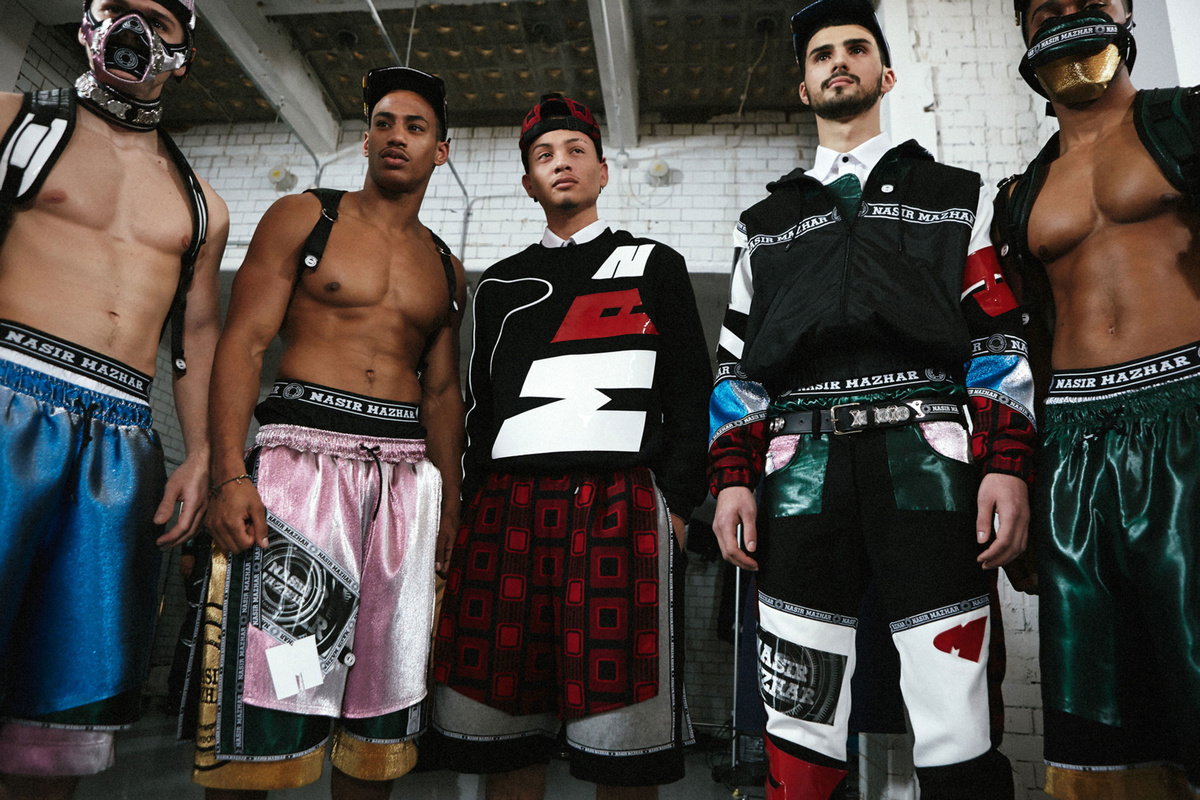How easy it must be for the young men of Generation 2000s. They got to be born at the tail end of a masculine revolution, which would allow them to grow up unconcerned with stuff like: is it okay for me to use moisturiser? Am I gay because I want a different hair colour? Am I gay for thinking about being gay? Before David Beckham, Jared Leto and Zac Efron, it was a different game entirely. Pubescent teenage boys secretly put lemon in their hair and sat out in the sun to get blonder, and travelled to the next town over, incognito, to buy concealer for their blemished skin. Not women’s concealer, of course, but those clinical ones with packaging that looked more like medicine than make-up. The product was largely the same, but you didn’t want to carry around the sexually confused baggage that buying an Estée Lauder would entail.
Metrosexuality was the dreadful phenomenon that changed it all. Dreadful not as an occurrence but as a term, because when advertising execs first spread it around the globe in the early 2000s, they really just handed conformists another fun word for ‘gay’. All of a sudden – straight or not – every clean, groomed and well-moisturised man on Earth was dubbed a metro rather than a poof, and male-oriented beauty was given a new male character for people to put in a box. Instead of letting masculinity evolve, men were once again spliced up into even more types, which all had an undertone of homosexuality. After all, why in the world would any self-respecting heterosexual man invest in beauty products, get hair treatments and manicures? He must be a social and sexual deviant of some sort. And women didn’t make it better, with popularly accepted ideas about ‘wanting a real man’.
“All of a sudden – straight or not – every clean, groomed and well-moisturised man on Earth was dubbed a metro rather than a poof, and male-oriented beauty was given a new male character for people to put in a box.”
The truth is metrosexuality was a term made popular by a society that couldn’t deal with the speed of its gender role evolution. Suddenly David Beckham, the muscular footballer, was wearing a sarong, pretty woman Julia Roberts was sporting hairy armpits, and homosexuality was being normalised in primetime by Will & Grace, Buffy the Vampire Slayer, and Ellen DeGeneres. Retailers were quick to respond with skin care lines for men (because you would never, ever get the same result with the same product for women, silly), and Jean Paul Gaultier even launched Le Beau Male, his make-up series for men. (It only included products for Southern European or at least very tanned Caucasian gentlemen, but if there’s one thing the masculine revolution has taught us, it’s one step at a time.) For the chicken-brained mainstream of the world, the winds of change were all too heavy, and at least the label of metrosexuality provided a comfort zone.
For years, the term was in everyday use around most of Western society. These days, after we’ve joined hands through Prop 8 demonstrations, life-affirming storylines on Glee, protests against Putin, the idea of Pussy Riot, and endless pictures of Elton John and David Furnish’ baby joy, the metrosexual somehow seems like a relic of an era long gone. For what it was, metrosexuality did some good things in its time, but the best thing it ever did was becoming irrelevant. Because what we needed in order to change society’s view of men, their skin care tendencies, and our acceptance of them, wasn’t a line of jet-black Clinique products that didn’t seem emasculating to an insecure straight man, but a global social climate change. The need for a word like metrosexual didn’t disappear until large parts of society realised that gay isn’t a bad thing to be associated with, even at the make-up counter.
Those boys, who were born in the 2000s and are becoming teenagers, now, will be the most interesting generation to observe. The first post-metrosexual young men they have the most socially accepting foundation ever for exploring their masculinity freely, without all the stigmas of the generations before them. Imagine how good their skin will be when they hit thirty. And perhaps one day, when they sit there with their highlighted hair and balmed lips, a teacher will tell them that years before their time, men didn’t buy beauty products because they were afraid of being associated with gays. Think about that the next time you’re queuing up for a Lancôme moisturiser.
Credits
Text Anders Christian Madsen
Photography Piczo
